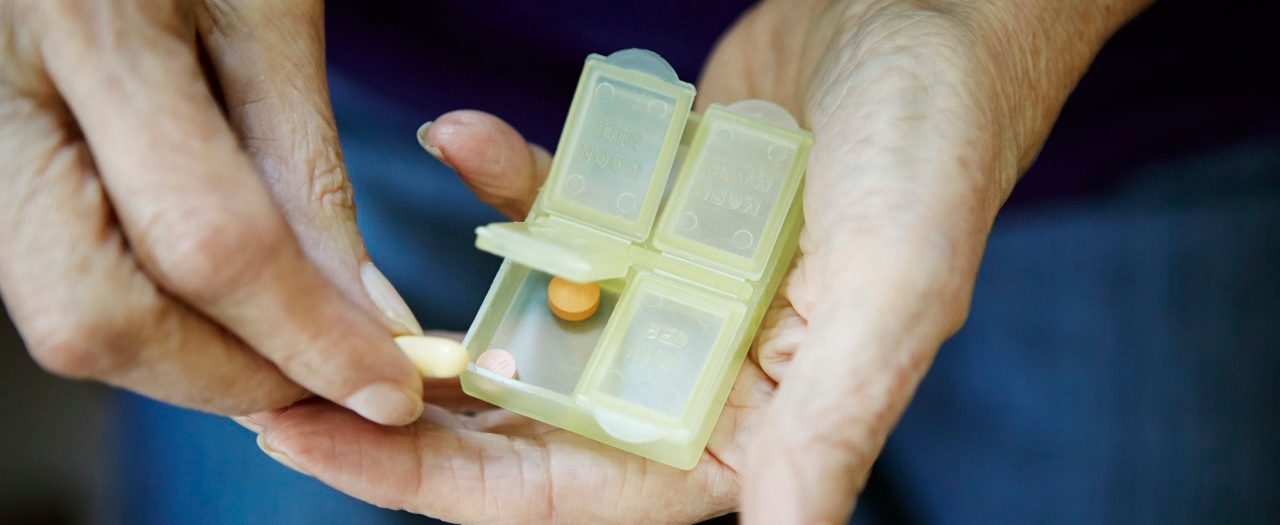Why People Don’t Take Their Medications

Nearly 125,000 people die every year from medication non-adherence.
Despite huge public campaigns aimed at getting Americans to take medications as they’ve been prescribed, many simply don’t.
It would seem to be a simple thing, right? You have a condition or disease diagnosed, and you take medication every day to keep it under control. Yet, surveys and studies have found that one in three medicine-related hospitalizations occur because people don’t take their medicine as directed.
In one study by Quest Diagnostics of urine samples from 76,000 patients, more than 60 percent of people on prescription drugs did not follow their doctor’s orders. Of the people that didn’t follow their doctor’s orders, two in five weren’t taking any medications at all.
The remaining 60 percent of misusers were taking something that wasn’t prescribed, and many people combined drugs without the oversight of a doctor, which is dangerous.
The problem is so serious that the National Consumers League (NCL) has created a comprehensive website called Script Your Future. It exists exclusively for the purpose of getting you to take your medications properly.
Distilled, the what is relatively easy to describe because it’s rampant. The why is a lot more complicated because even people with common sense are among those who decide, for some reason, to roll the dice on their lives.
According to the Food and Drug Administration (FDA), common obstacles to medication adherence include the inability to pay for them and disbelief that the treatment is necessary or helping.
People also get confused over taking many medications with complex “dosing schedules,” the FDA says.
Script Your Future adds forgetfulness and side effects. Sometimes it’s just disobedience, in the same way as speeding or dumping garbage where you’re not supposed to. Inside all of us is a little kid wanting to push the boundaries and act out. But with prescribed drugs? Not a good idea.
Sometimes patients don’t stick to their treatment because they didn’t get their questions answered, or their healthcare provider didn’t explain the critical importance of taking the medicine.
If this all sounds familiar, don’t feel too guilty. In a study of medical students who were prescribed Tic Tacs (those little, white mints that look like pills), fewer than half followed instructions to the letter. They knew it was candy and that the exercise was designed to teach them about non-adherence.
“Basically, decades of research to identify measures of non- adherence have yielded just one fact: There are no solid measures,” concluded an article on the issue in Slate.
So what to do? If you’re not adhering to the prescription(s) you have because you are confused or have questions, like how the medicine works or other concerns, talk about it. Doctors, nurses, pharmacists, and other healthcare professionals can help you understand your condition and how to manage it. That starts with taking your medications.
Try not to be afraid or intimidated. You are only asking them to do their jobs, and you’ll probably find that they are happy to answer your questions once you can overcome the feeling that you are somehow imposing on them.
Especially if side effects are keeping you from taking your medications, talk with your doctor or pharmacist about what you can do to lessen the problem. There may be another drug you can take that won’t have the side effects; your prescription may need to be adjusted to minimize them.
If it’s a once and done prescription, like an antibiotic, make sure you finish it. The reason the bottle always says “finish all of this medication unless otherwise instructed,” is because many people quit taking it when they feel better. Often, that’s right away. But, you still have the infection in your system, and it may return, or get worse, if you don’t complete the course.
If cost is the problem, talk to your doctor. One alternative is to switch to a generic equivalent, which is always much cheaper. Online pharmacies, now common, also usually offer savings when compared to brick-and-mortar pharmacies. Some doctor offices have free sample packs of medication.
There may be drug assistance programs in your state. You can find several online. Many pharmaceutical companies offer direct discounts on their drugs. They usually make those available through doctors’ offices.
You probably know about those pill boxes that enable you to organize a week’s worth of daily medications. Use them. They help you set daily routines. You probably have such routines for eating and sleeping. Why not for taking your meds?
Similarly, keep your medications where you’ll notice them. You could keep a medication that should be taken with food, for example, on the dinner table. Try keeping medications you take in the morning in your bathroom next to your toothbrush.
Modern technology can also help. There are now many devices designed to help you adhere to a medication schedule. Those include medication reminder pagers and wristwatches, automatic pill dispensers, even voice command medication managers, the FDA notes. If you have a smartphone, download a pill reminder app. MediSafe Meds & Pill Reminder is available from both iTunes and Google Play.
Keep a written or computerized record of what you took and when. You can allay confusion that might disrupt your schedule, eventually leading you to just give up. The FDA offers a form online you can print and used to list all your medications.
If you’re just being belligerent, a real reason some people don’t take their medications, tell your inner child to go play with his toys so you can be the adult who is in control and knows what to do for your well-being.
Updated:
March 31, 2020
Reviewed By:
Christopher Nystuen, MD, MBA